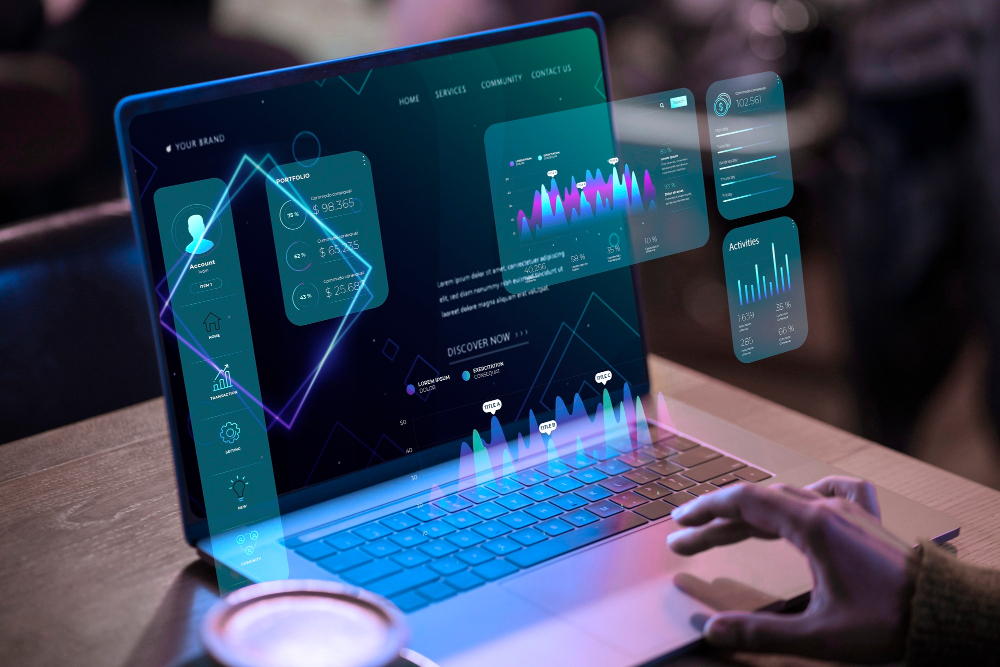
Data Science vs Data Analytics vs Data Engineering
Compare data analyst, scientist & engineer roles — find the right data career path based on your interests, skills & goals.
Data Science vs Data Analytics vs Data Engineering: Which Career Path to Choose?
If you’ve ever typed “what’s the difference between data science, analytics, and engineering?” into Google, you’re not alone. It’s one of the most common questions for anyone looking into a career in data.
A lot of people want to work in data but don’t know where to start. The job titles sound similar, the tools often overlap, and many course descriptions just make it more confusing.
This guide breaks it all down in plain English. You’ll see what each role actually does, what tools they use, and who each path suits best.
Not sure which course to take? This side-by-side comparison will help, and we’ll share the right programs that match each path.
Quick Overview: What’s the Difference?
Here’s a fast breakdown before we get into the details:
Role | Focus | Think of It As |
Data Analyst | Interprets data to guide decisions | The storyteller |
Data Scientist | Builds models and predictions | The investigator |
Data Engineer | Builds the systems and pipelines | The architect |
Each role plays a part in how companies use data. Analysts turn numbers into insights. Scientists look for patterns and build models. Engineers build the tools everyone else uses.
Now let’s dig deeper into each.
1. What Does a Data Analyst Do?

A data analyst looks at raw numbers and helps the team understand what’s going on. They clean the data, find patterns, and make reports that support decision-making.
What They Usually Do:
Write queries to pull data from a database (mostly SQL)
Make dashboards and reports in Excel, Power BI, or Tableau
Spot trends or changes in business metrics
Share insights with marketing, sales, product teams, etc.
Tools Used:
Excel
SQL
Tableau / Power BI
Basic Python or R for data cleaning
Is This You?
You like organising information, making charts, and helping others make smart decisions based on data.
Sample Project:
Analysing how well a social media ad performed and recommending changes for the next campaign.
2. What Does a Data Scientist Do?

A data scientist uses statistics and code to make predictions or create smarter tools. This job involves more math, more programming, and more time spent building models.
What They Usually Do:
Build machine learning models (like predicting churn or sales)
Run A/B tests to see what works better
Clean and prepare large datasets
Work with product or engineering teams on data products
Tools Used:
Python or R
scikit-learn, TensorFlow
SQL
Jupyter Notebooks
Is This You?
You enjoy coding, problem-solving, and math. You get excited about predicting trends or making something smarter with data.
Sample Project:
Building a model that predicts which customers are likely to cancel their subscriptions.
3. What Does a Data Engineer Do?

A data engineer sets up the systems and tools that store and move data. They write the code that connects databases, cleans data in bulk, and makes sure other teams can access what they need.
What They Usually Do:
Build data pipelines (ETL)
Move data between systems (like from an app to a data warehouse)
Optimize queries and database performance
Set up cloud storage and architecture
Tools Used:
Python, Java
SQL, Spark, Kafka
AWS, Google Cloud, or Azure
Is This You?
You like solving backend problems, working on infrastructure, and making sure things run smoothly behind the scenes.
Sample Project:
Creating a pipeline that collects app data in real-time and stores it in a dashboard-friendly format.
Side-by-Side Comparison
Feature | Data Analyst | Data Scientist | Data Engineer |
Main Focus | Business insights | Predictions & modeling | Infrastructure & pipelines |
Programming Level | Low–Medium | Medium–High | High |
Math & Stats | Basic | Strong | Moderate |
Salary Range | $60K–$90K | $85K–$130K | $90K–$130K |
Typical Background | Business, Econ | CS, Stats | CS, Engineering |
Best for People Who… | Love insights and storytelling | Enjoy coding + math | Prefer building systems behind the scenes |
What People Search (and What It Means)
Let’s decode some common search terms:
“data analyst vs data scientist”: They’re trying to figure out which one fits better or where they’ll earn more.
“data science vs data analytics course”: They want to learn data but don’t know which course is right.
“difference between data engineer and data scientist”: Often developers or tech-savvy folks exploring a move into data.
All these searches show one thing: people want clarity before they commit.
Which Career Path Should You Choose?
Here’s how you can figure that out:
Based on Your Interests:
You enjoy explaining numbers and trends → Go with Data Analyst
You like coding, building, and problem-solving → Try Data Scientist
You care about backend systems, automation → Think about Data Engineer
Based on Your Background:
From Business or Finance? → Analyst is a smooth transition
From Math, Physics, or Statistics? → Scientist might feel more natural
From Software Development or Engineering? → Engineer is the closest match
Not Sure Yet?
Start small. Take an intro analytics course or play around with Python tutorials. Build a project or analyse a dataset that interests you. You’ll quickly figure out what you enjoy most.
How to Start Learning Each Path
Let’s talk about how you can get started and what programs to check out.
For Data Analysts:
Start with:
Excel basics
SQL querying
Tableau or Power BI
For Data Scientists:
Start with:
Python
Math and stats refresher
Beginner machine learning projects
For Data Engineers:
Start with:
Python programming
SQL and databases
Cloud services (AWS or GCP)
The Best Path Is the One That Fits You
All three roles — analyst, scientist, and engineer — are growing fast. They pay well, offer job security, and give you a front-row seat to how companies make decisions with data.
You don’t have to lock into one forever. People switch between these roles all the time. Start with the one that clicks with your interests, and go from there.
You may also like
How 2026 AI Will Leave You Behind If You Do Not Learn It
AI is quietly becoming the brain behind your apps, workflows, and future job. This article shows how OpenClaw, Moltbook, and agentic AI are changing what engineers do and nd why learning AI engineering now protects your career.
Real World Use-Cases of Software Engineering Principles in Spotify and Netflix
Understand how Spotify's Discover Weekly uses collaborative filtering while Netflix combines multiple algorithms to create personalized experiences for hundreds of millions daily.
AI Automation's Impact on Entry-Level Tech Hiring in 2026
As AI automation reshapes the tech job market by 2026, entry-level roles will evolve dramatically. Discover how aspiring developers can adapt and thrive in this changing landscape by focusing on skills that complement AI technologies.


